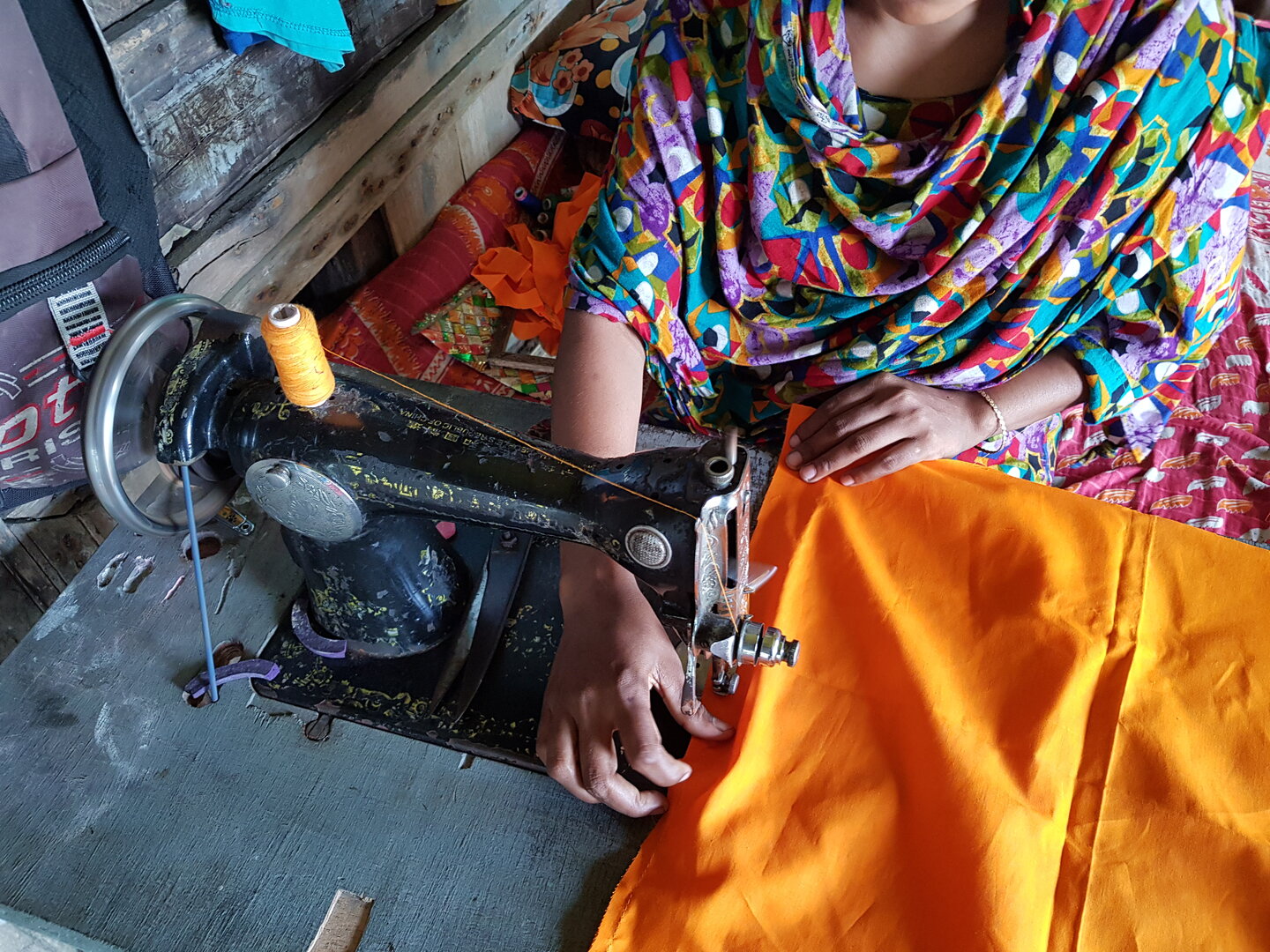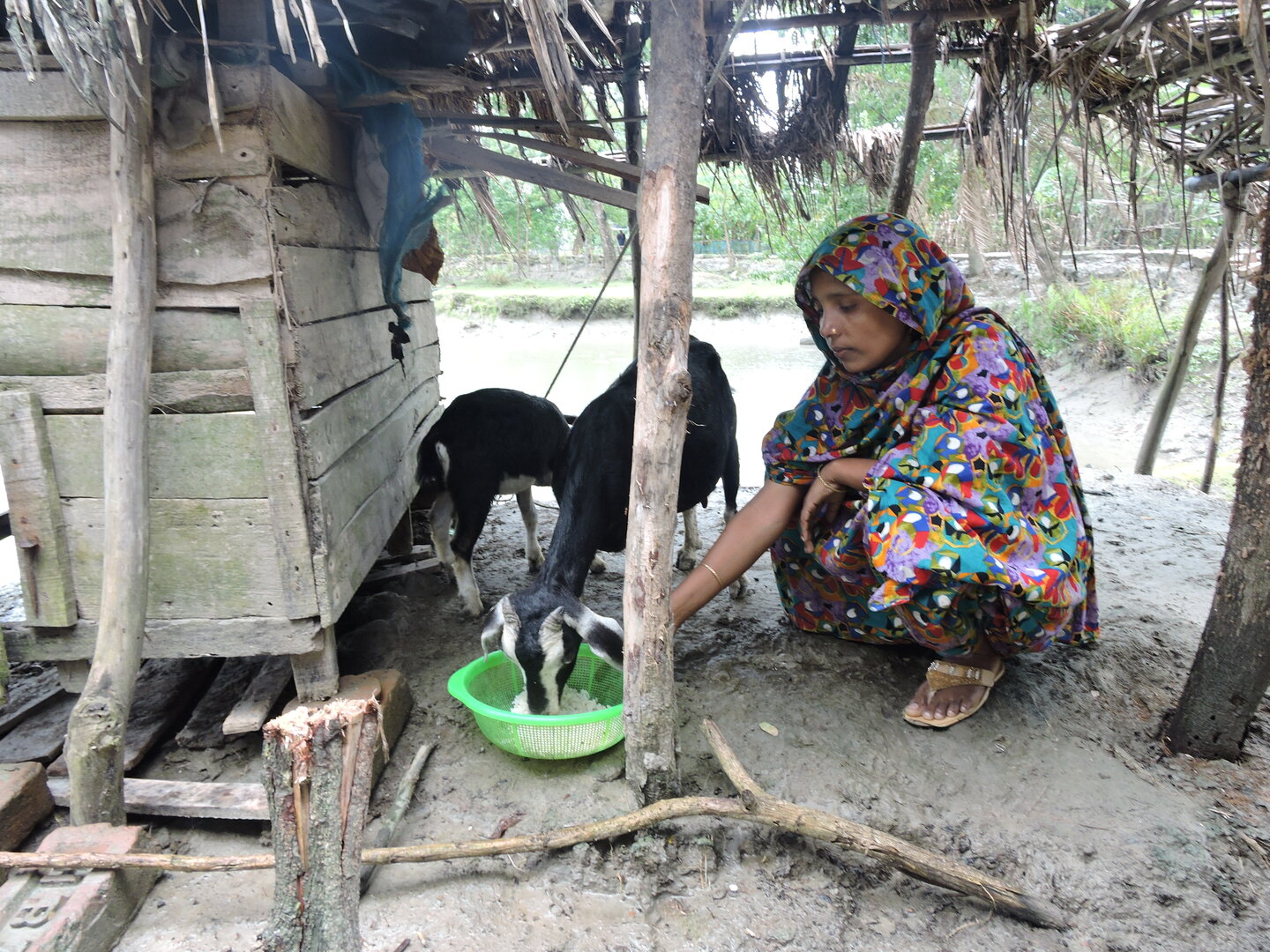The southwest coastal region of Bangladesh has an estimated 2.5 million poor inhabitants, including 1.4 million ultra-poor. Livelihoods are threatened by acute shortage of drinking water, scarcity of freshwater for agriculture, soil salinity, and significant changes in coastal aquatic ecosystems. Both net food production and the diversity of food production in the region have declined significantly over the past decades.
Climate change, deforestation and shrimp farming are increasing the salinity of the soil and groundwater in southern Bangladesh. The Panii Jibon project – Water is Life – builds resilience of climate change affected communities, especially women and youth, in the disaster-prone districts of Bagerhat and Khulna in Southwest Bangladesh. Panii Jibon addresses technical adaptation of farming and water management systems; training around safe migration and productive remittance investments, as well as advocacy to support local demands for transparent and accountable governance. Panii Jibon works with communities and trains them to request that the government fulfil its duties and ensure that drinking water is available to all.
This is the story of Nasrin Begum and her family, who live in one of the most vulnerable coastal districts in Bangladesh. They are among many who are severely affected by water salinity, soil erosion and floods in this area.

"My name is Nasrin and I am a tailor.I work at home with my sewing machine. My husband and I have three children, and we live in the village of Parchim Baharbunia in the southwest coastal region. My husband works as a mason, as a day labourer. Currently his work is near the village and he can come home in the evenings. Previously he was a tailor but decided to become a mason to increase his income. My husband taught me the basic skills for using the sewing machine and since then it has been my main activity. My income is enough to cover the school fees for the children, and the income of my husband is for all other expenses."

"Some ten years ago, we could cultivate homestead vegetables. But since then the river has come closer to the house, encroaching on our land. Now, the house is surrounded by water and there is no land to cultivate, so we have to buy our food at the market, which is costly. We are able to keep some animals: five chickens, two goats and a duck. We have ponds near the house but cannot farm fish because they would be lost in the river during the storms."

"When flooding comes I move the kitchen utensils and put them on higher shelves. On those days I can’t cook where I usually do and I have to use a special stove. When the wind is very strong, I close all the windows in the house."
"There is abundant water but it is not good for use. The small amount of land we still have is also too saline and is flooded most of the time. In the dry season we have to walk between two and three kilometres to collect water from the deep tube well. But the water we get there is salty and unhealthy."
"It fills up during the monsoon season. It is better for us when we have water in the container and we do not have to fetch salty water from afar. If the container was bigger we could have clean water for longer."
"Our family house is located on the bank of the river and is very vulnerable to storms, cyclones and strong wind. With climate change we can’t predict rain. During the rainy season, we feel scared as we don’t understand about the weather and when the rain will come. Our house is not protected. We have already experienced several cyclones, like Sidr in 2007. We are suffering from extreme weather, very cold and very hot, which wasn’t the case before. This weather isn’t bringing good things."
"The Union Disaster Management Committee alerts us about the arrival of a cyclone and we get early warning information from a member of the ward."
"Before, I used to go to other people’s houses with a TV or radio to get some information. I am also involved in the village health group, and am a focal point in the local Mother Parliament Group where we discuss water and sanitation issues, and ask the local authorities to guarantee our rights."
Parchim Baharbunia village receives support in adapting to climate change through the Panii Jibon (‘Water is Life’) project by HELVETAS Swiss Intercooperation, in collaboration with local partner organisation Development Organization of the Rural Poor (DORP),Ovibashi Karmi Unnayan Program(OKUP),International Centre for Climate Change and Development(ICAAD) & Bangladesh Disaster Preparedness Centre (BDPC)














